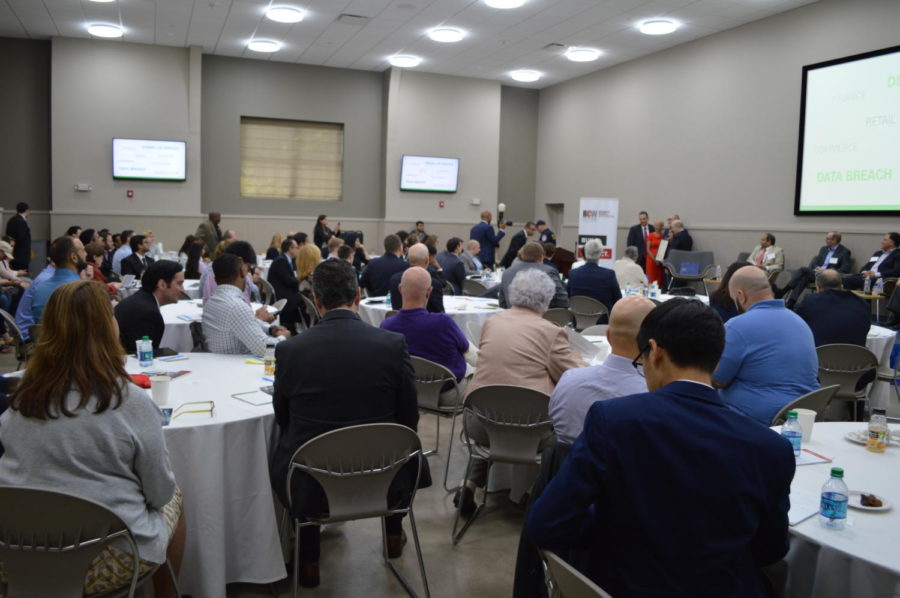Manhattan District Attorney Opens Discussion on Cyber Warfare At Pace
Speaking to a crowd replete with suits and distinction, Cyrus Vance Jr., District Attorney for Manhattan, delivered a message in Willcox Hall grave in implication but hopeful in outlook: Globally, we are unprepared to defend against cyber warfare, but have tools to stem the bleeding until we find a lasting solution.
In 2017, as of October 3rd, there are reported to be 1,056 breaches globally that have exposed 171 million records, the highest number in the past 10 years save 2009, where 222.5 records were exposed, according to the Identity Theft Resource Center.
“We have all these major sectors being hit,” yet they are “not sharing this cyber [attack] data with each other.” says Vance.
Between 2015 and 2017, over double the average amount of records have been stolen, with 169.1 and 171 million being reported respectively over the average of 82.56 mil. records a year since 2007. Paired with the 1,056 breaches we’ve had in 2017, well over the average 642 breaches per year, a growing trend becomes clear.
“Publicly, we need to have more dialogues like this. There is no reason why we shouldn’t be having these types of collaborative conversations,” says Lesley A. Massiah-Arthur, Associate Vice President of Government Relations and Urban Affairs at Fordham University.
“It’s what do you do after the conversation, I think, [that] becomes the difficult thing,” she said. “How do we put flesh to the bones?”
According Manhattan DA Vance Jr., there aren’t any lasting fixes, or ‘flesh’, that we’ve developed yet with the “same old ways,” not “[cutting] it.” Instead, he offers a temporary fix through an organization which he is a member of, the Global Cyber Alliance until we can find a solution globally and cooperatively.
The Global Cyber Alliance, centered in midtown Manhattan in Bloomberg Tower, is a non-profit start-up aimed at providing comprehensive security to larger businesses, and toolkits to smaller businesses, to protect from common forms of cyber-crime such as email phishing.
As businesses themselves, public and private universities are prone to these attacks as well. According to Assistant Vice President of Government and Community Relations at Pace, Vanessa J. Herman, Pace doesn’t see themselves as an exception to this trend.
“We are doing everything we can [at] Pace, like every other university, to be smart in our approach and make sure that there are procedures in place” Herman had to say of the digital protection Pace seeks to provide.
“To make sure everyone’s data is protected, not just students’ but faculty, students, staff, alums’, parents’ information,” she said. “I think that’s something not only every university, but every big business has to deal with when you’re doing business in the world today.”
In the future, Herman hopes to continue the discussion about privacy and digital protection locally by “[having] productive conversations about these things and [about] how best to move forward,” she said. “and how best to do that with the incredibly bright students we have here at Pace.”
Your donation supports independent, student-run journalism at Pace University. Support the Pace Chronicle to help cover publishing costs.

